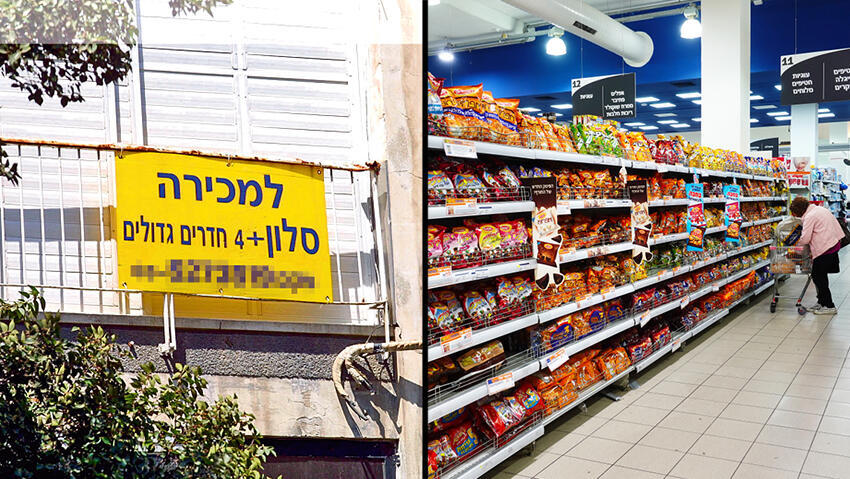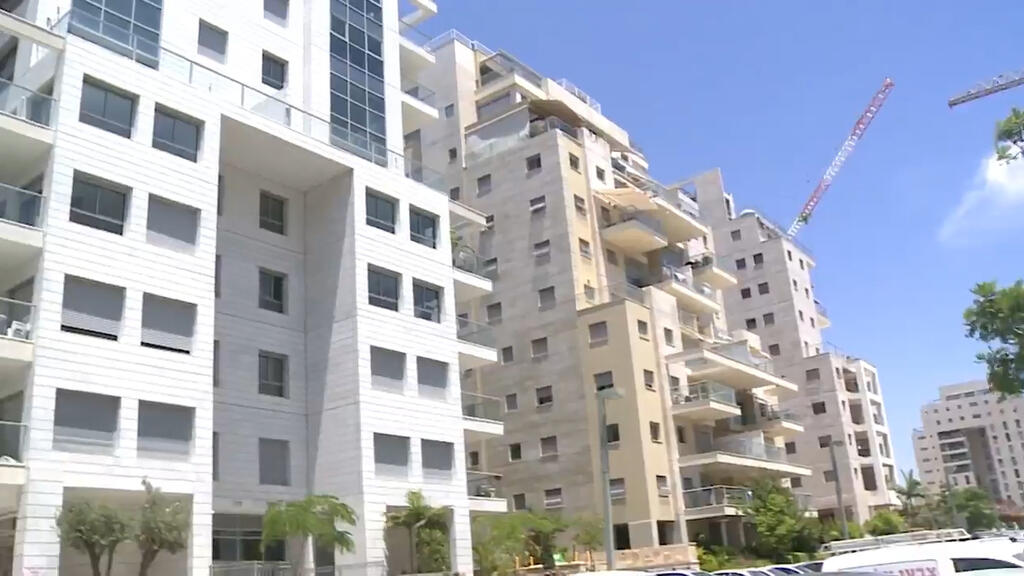The consumer price index rose in July by 0.3%, but in annual inflation dropped significantly to a rate of only 3.3%, compared to 4.2% last month, according to the data published Tuesday by the Central Bureau of Statistics. The reason for this is that in the same month last year the CPI rose by 1.1% and the current month's index was much lower. In other words, it is likely that the next index will again see an increase in the annual inflation rate
More stories:
Notable price increases were recorded in vegetables and fruits, which increased by 3.4%; housing and transportation, which increased by 0.7% each; apartment maintenance, which increased by 0.6%; and food, which increased by 0.4%. Notable price decreases were recorded in clothing and footwear items, which decreased by 4.8%; furniture and home equipment and communication, which decreased by 1.2%.
In addition, trips abroad increased by 5.6% due to the increase in the exchange rates of the dollar and the euro, and the price of water and sewage services increased by 3%. Bananas increased by 33% and avocados became more expensive by 18%.
In recent months, the government has tried to moderate inflation in Israel a little, but it is still at a rate higher than the upper limit set by the government - 1% to 3% per year. The government has been preventing the increase in the price of fuel for months with a tax reduction. Also, the government lowered, but did not cancel, the increase in electricity and water prices and, for the time being, also stopped the increase in public transportation prices.
The question is, of course, how long the government will be able to spend hundreds of millions of shekels from its budget to subsidize products and services. Senior officials in the Treasury are already demanding an end to the subsidy, when in any case the state's monthly income from taxes is and the deficit is swelling.
Apartments fell by 0.2%, the annual increase fell to 5.2%
In the meantime, the CBS also published the housing price index for the months of May-June 2023, fwhich showed that the prices of apartments decreased by 0.2% compared to the months of April-May, and the prices of new apartments decreased by 0.6%
Housing prices increased by 5.2% compared to May-July 2022. When divided by districts, the following annual price increases were recorded: Haifa 8.9%, North 8.5%, Jerusalem 6.6%, South 5.2% , Center 5.2%, and Tel Aviv 2%. The annual new apartment price index rose by 5.8%.
For new apartments, the rate of transactions within the framework of government support increased from 24.1% in the previous period (April-May 2023) to 26.7% in the current period. There is a negative relationship between the rate of transactions with government support and the new apartment price index. An inspection conducted by the Central Bank shows that the price index for new apartments excluding transactions with government support decreased by 0.3%.
In the second quarter of 2023, the average price for an apartment nationwide was 1.968 million shekels, a decrease of 0.6% compared to the average price in the previous quarter shekels. of 1.98 million
Compared to the average price in the second quarter of 2022 (1.89 million shekels), the average price in the last quarter increased by 3.9%. Increases in the nationwide average price of an apartment in Israel in the second quarter of this year compared to the second quarter of last year were recorded in all districts: Jerusalem 14.4%, Haifa 10.7%, Central 8.3%, North 5.3%, Tel Aviv 3.5% and South 0.4%.
Comparing the average prices in the second quarter of 2023 with the second quarter of 2022 shows that the five cities with the highest price level are: Tel Aviv (about 4.2 million shekels) - where the price level is significantly higher than the other cities, Herzliya (about 3.6 million shekels), Kfar Saba (2.9 million shekels), Jerusalem (2.8 million shekels), Ramat Gan (2.7 million shekels) and Netanya (2.5 million shekels). In contrast, the lowest prices were recorded in the cities of Beer Sheva (about 1.2 million shekels), Ashkelon (about 1.3 million shekels) and Haifa (about 1.5 million shekels).
Comparing the average prices in the second quarter of 2023 compared to the second quarter of last year, shows that only two cities saw decreases in the average prices: Rishon Lezion (4.8%) and Ashkelon (4.0%). A sharp increase was recorded in the city of Beit Shemesh (37.4%). Increases of over 10% were recorded in the following cities: Haifa (15.9%) and Netanya (12.4%). In the other cities, average price increases of up to 10% were recorded.
At the same time, rent continues to soar, with the section of rent excluding public rent rising by 0.5% last month. Monthly rent for tenants who renewed a contract, there was an increase of 3.8% and for the new tenants (apartments in the sample where there was a change of tenant) there was an increase of 9%.



